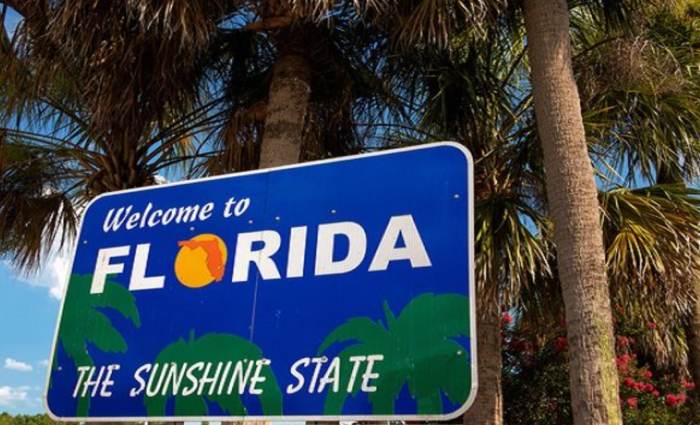Florida OIR launches temporary reinsurance arrangement through Citizens

In an effort to further stabilise its property insurance marketplace, the Florida Office of Insurance Regulation (OIR) has announced a plan to launch a temporary reinsurance arrangement through Citizens Property Insurance Corporation.
The new reinsurance arrangements has been established “in the event of disruptive financial rating downgrades from Demotech, Inc.,” the regulator explained.
Recall that rating agency Demotech had warned more Florida property insurance carriers that they may have their ratings downgraded. A move which the regulator and state leaders have railed against.
Demotech responded to that back lash from the state, defending its process and saying the current rating revision process will take longer than anticipated.
But there are clearly some significant concerns among Florida lawmakers that a mass-downgrade event would throw the states insurance market into even deeper crisis, hence this sudden move announced today.
Calling the new temporary reinsurance solution under Citizens Property Insurance Corporation “unprecedented” the regulator said it would help insurers meet an exception offered by the Federal National Mortgage Association (Fannie Mae) and the Federal Home Loan Mortgage Corporation (Freddie Mac), which would help to ensure Floridians can maintain coverage during hurricane season.
As we’ve explained before, Florida’s insurers are skating on such thin financial ice that a ratings downgrade for a group would mean an inability to write business in the secondary mortgage marketplace, as with a rating below ‘A’, mortgage guarantors Fannie Mae and Freddie Mac won’t accept their policies any more.
Which would plunge Florida into a much deeper insurance crisis, with downgraded insurers that can’t survive and likely hundreds of thousands of additional policyholders finding themselves insured with Citizens, the insurer of last resort, or having to look for new policies.
“OIR’s greatest priority is ensuring consumers have access to insurance, especially during hurricane season; and because of the uncertainty with the status of Demotech’s ratings, we’ve been forced to take extraordinary steps to protect millions of consumers,” explained Insurance Commissioner David Altmaier. “This innovative arrangement satisfies requirements set by the secondary mortgage market. In the event we need to implement this temporary solution, consumers will not need to seek coverage elsewhere, agents will not need to move policies, and lenders can have confidence that these insurers continue to meet the mortgage qualifications.”
The regulator explained how the temporary (perhaps emergency) reinsurance will benefit the Florida market:
Fannie Mae and Freddie Mac each offer an exception to the financial rating requirements for an insurer that is covered by a reinsurer who assumes, by endorsement, 100 percent of the insurer’s liability for any covered loss payable, but unpaid by the insurer, by reason of insolvency. In the event that a participating insurer is declared insolvent, the Florida Insurance Guaranty Association shall carry out its statutory duties under Part II of Chapter 631, Florida Statutes, and pay claims as set forth in the statute.
Working with Florida Citizens, the regulator said it has “formed a program that meets the exceptions to the Fannie Mae or Freddie Mac guidelines.”
As a result, “there should be no reason for lenders to require a replacement policy, or force place coverage based solely on the ratings downgrades,” the regulator said.
Adding that, “This temporary arrangement would allow insurers to remain viable, to continue providing coverage for Floridians and helps keep policies out of Citizens.”
The Florida Office of Insurance Regulation also added that while it received a response from Demotech, it did not receive a timeline for the ratings decisions to be made, adding that insurers losing an acceptable Financial Strength Rating would have a significant impact on the marketplace and Florida’s insurance consumers.
Which it is easy to agree with, but also easy to question whether another state-supported reinsurance facility is anything more than a sticking plaster being applied to the deeper problem of litigation, fraud, thinly capitalised insurers and a dysfunctional market that needs truly meaningful reforms, sooner than later.
Of course, it is important to ensure homeowners’ aren’t affected by a mass failure of carriers. But it’s also important to ensure that, first those carriers meet a certain level of financial strength and can operate independent of state support as much as possible, and second the state’s laws are supportive of a healthy and competitive insurance marketplace.
As a result, already calls for more legislative reforms are being heard. The special session reforms were never going to resolve all of Florida’s property insurance issues and so more reform has seemed inevitable for some time.
But that needs to get through the legislative, which in a year where the next special session isn’t scheduled until late May 2023, right before what could be another challenging reinsurance renewal, suggests something more urgent and swiftly enacted is needed, to return confidence in Florida’s insurance marketplace.
It is important to help the insurers continue to deliver value to customers where they are likely to have sustainable business models in their own rights.
But supporting them with taxpayer backed facilities could come back to bite the state should a major catastrophe loss event occur.
Of course, it’s easy to opine that the right thing to do would be to legally reform the market to completely eradicat fraud and litigation, while letting thinly capitalised or poorly strategised insurers fail, but the impacts to Floridians could be significant in the short-term.
Therefore, an emergency response like this is not surprising at this time, given the political nature of this issue now.
But lawmakers mustn’t lose sight of the longer-term and the need to get Florida’s property insurance market into a far better state of health and one that isn’t constantly teetering on the brink of crisis year after year.
Read all of our news and analysis on the Florida insurance and reinsurance market.





